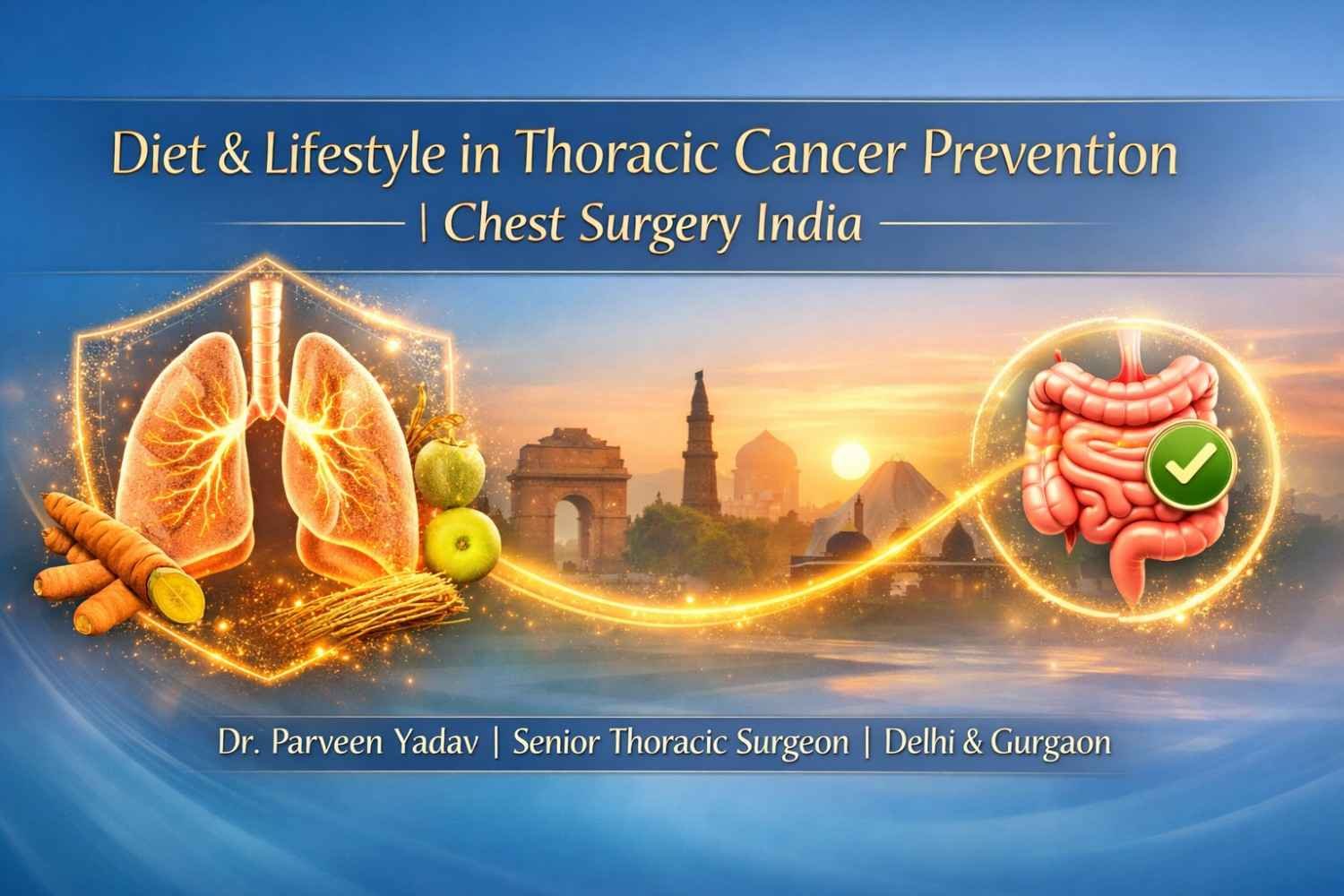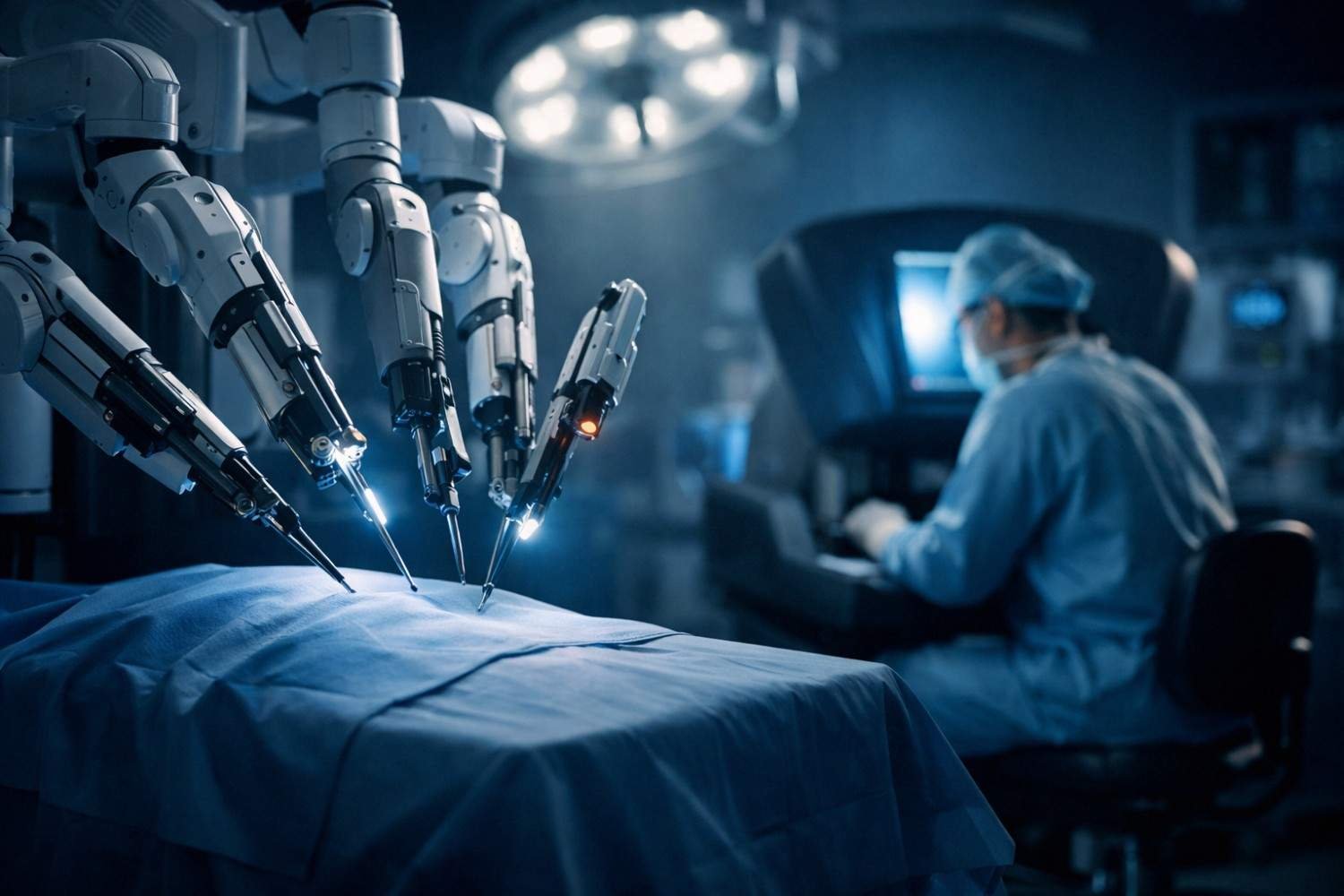

Facing a diagnosis of esophageal cancer can be overwhelming, but surgery often provides a pathway to recovery and improved quality of life. Esophageal cancer surgery is a complex procedure that involves removing the affected part of the esophagus and reconstructing it using other tissues, like the stomach or intestines. This life-saving surgery requires not only the expertise of skilled healthcare professionals but also the patient's active involvement in preparing for the procedure.
Proper preparation is critical for ensuring a smooth surgery and optimizing recovery. It involves physical conditioning, mental readiness, and practical arrangements. From pre-surgical tests to lifestyle adjustments, each step is designed to improve your body's capability to withstand the procedure and heal efficiently afterwards. In this blog, we'll walk you through the detailed steps to prepare for esophageal cancer surgery, empowering you with knowledge and practical advice for a successful journey.
Preparation for esophageal cancer surgery is critical for achieving the best possible outcomes. This process involves more than just showing up for the procedure—it's about optimizing your physical health, emotional resilience, and logistical readiness to ensure a smoother surgical experience and recovery.
A well-prepared body is sufficiently equipped to handle the physical demands of surgery. Optimized nutrition, regular exercise, and medical readiness reduce the risk of complications like infections, wound issues, or blood clots.
Patients who follow pre-surgical guidelines often recover faster. Strengthening the body and lungs through breathing and mobility exercises helps regain mobility sooner after surgery.
Proper fitness assessments and health optimization ensure your body can safely handle anaesthesia's effects.
Surgery can be mentally daunting. Understanding the process, planning, and addressing fears or concerns with the healthcare team can reduce anxiety and create a sense of control.
By addressing health factors like smoking, alcohol consumption, or chronic conditions, patients minimize risks during and after the procedure.
Before the surgery, your healthcare team will conduct various tests to ensure you can undergo such an extensive procedure. These tests assess your overall health, heart and lung function and readiness for recovery.
Before undergoing esophageal cancer surgery, your healthcare team will conduct a string of tests to assess your overall health and assure you are fit to handle the procedure. These tests are critical for minimizing risks during surgery and optimizing recovery. They assess your heart, lungs, and general physical condition, identifying potential issues that could complicate the operation.
Blood tests provide a clear picture of your general health, checking for conditions like anemia, infections, and nutritional deficiencies. They also evaluate kidney and liver function, ensuring these organs can process medications and anaesthesia properly.
This test measures the electrical activity of your heart, helping to identify abnormalities such as arrhythmias or signs of previous heart conditions. A healthy heart is crucial for tolerating the stress of surgery and anesthesia.
These tests assess your lung capacity and check for underlying respiratory conditions, such as chronic obstructive pulmonary disease (COPD) or infections. Healthy lungs are vital for recovery, as breathing complications are a common risk post-surgery.
This ultrasound test provides a detailed image of your heart's structure and function, evaluating its ability to pump blood effectively. It can detect heart valve issues or other conditions that might impact surgical outcomes.
This test measures how well your heart and lungs respond to physical activity. By analyzing oxygen and carbon dioxide levels during exercise, doctors can gauge your body's ability to handle the physical stress of surgery.
Screening for infections ensures that you do not have any active conditions, such as MRSA, that could increase the risk of complications during or after surgery.
The pre-assessment clinic is an essential part of preparing for esophageal cancer surgery. This session allows your healthcare team to evaluate your overall fitness for surgery and provide you with guidance tailored to your needs. It is an opportunity to discuss your health, ask questions, and handle concerns about the procedure and recovery process.
The medical team reviews your medical history, current health conditions, and diagnostic test results to ensure a complete understanding of your physical state and can make necessary recommendations.
Your doctor will assess your current medications to determine if any need to be adjusted, paused, or substituted to avoid complications during surgery.
You'll receive practical advice to improve your physical readiness, including:
The surgeon explains the surgical process, possible risks, expected outcomes, and recovery timeline. After all your questions are answered, you'll be required to sign a consent form.
Emotional readiness is equally important. The team may provide resources or referrals to counsellors or support groups to help you manage anxiety and build confidence for the procedure.
The pre-assessment clinic is not just a formality; it's a crucial step in assuring your safety and maximizing your chances of a successful surgery and recovery.
A multidisciplinary team of specialists will counsel you through the preparation, surgery, and recovery phases. Understanding their roles helps you communicate effectively.
Leads the surgical procedure, explains potential risks and benefits, and answers questions about the operation.
A point of contact for all your needs, the CNS coordinates your care and provides emotional and informational support.
Advises on meal plans to optimize pre-surgical nutrition and post-surgical recovery. In some cases, they may recommend tube feeding if eating is difficult.
Administers anesthesia during surgery and monitors your vitals to ensure safety throughout the procedure.
Tracks your vital signs and assesses your home environment to plan post-surgical care.
Teaches exercises to improve mobility and prevent complications such as chest infections or blood clots.
Surgery is a significant event, and careful planning ensures everything runs smoothly, from hospital admission to discharge.
Pack essentials to make your hospital stay comfortable:
Physical exercises before and after surgery improve circulation, reduce the risk of complications, and strengthen your body.
Surgery impacts various aspects of daily life, so making arrangements in advance is essential.
A 58-year-old patient diagnosed with esophageal cancer struggled with low stamina. They showed remarkable recovery post-surgery after incorporating daily breathing exercises and a high-protein diet. These steps reduced complications and shortened their hospital stay.
A patient initially hesitant about the procedure found comfort in regular discussions with their clinical nurse specialist. The emotional readiness and understanding of what to expect helped them stay positive and recover quickly.
Preparing for esophageal cancer surgery involves physical, emotional, and logistical readiness. From undergoing essential tests to meeting your healthcare team, each step is vital in ensuring the best possible outcome.
When considering esophageal cancer surgery, Chest Surgery India in Gurgaon is the trusted choice. With cutting-edge technology and personalized care, Dr Parveen Yadav, a leading esophageal cancer surgeon, ensures exceptional outcomes and compassionate treatment.

18+ Yrs Exp | 5,700+ Thoracic & Robotic Cancer Surgeries
Dr. Parveen Yadav is a Director and Senior Consultant in Thoracic and Surgical Oncology, specializing in minimally invasive and robotic lung and esophageal surgeries, with advanced training from AIIMS and Tata Memorial Hospital.
View Full Profile Pain After Thoracic Surgery: Tips for Smooth Recovery
Pain After Thoracic Surgery: Tips for Smooth Recovery
 Diet & Lifestyle for Thoracic Cancer Prevention | Dr. Parveen Yadav
Diet & Lifestyle for Thoracic Cancer Prevention | Dr. Parveen Yadav
 Robotic Thoracic Surgery: How Da Vinci Technology is Revolutionizing Chest Procedures
Robotic Thoracic Surgery: How Da Vinci Technology is Revolutionizing Chest Procedures
Struggling with pain after chest surgery? Dr. Parveen Yadav shares expert recovery tips, causes of shoulder pain, PTPS signs, and what your discharge sheet won't tell you.
Discover how diet, breathing exercises & daily habits help prevent and recover from thoracic cancer. Expert insights from Dr. Parveen Yadav, Chest Surgery India
Discover how Da Vinci robotic surgery is transforming chest procedures in Gurgaon. Less pain, faster recovery & expert care by a certified thoracic surgeon
Copyright 2026 © Dr .Parveen Yadav all rights reserved.
Proudly Scaled by Public Media Solution!